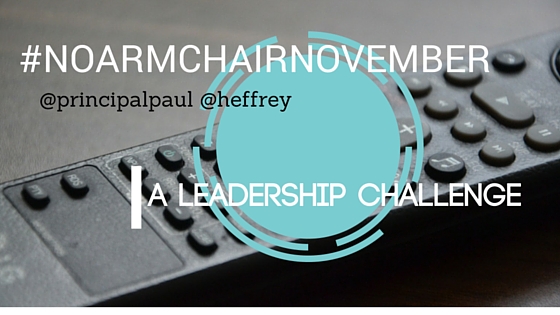Game of Six of the ALCS fans nearly watched the Royals blow a solid 3-1 lead against the Blue Jays when slugger Jose Bautista crushed a pitch from relief pitcher, Ryan Madson. Royals fans certainly had to feel sickened by this unfortunate turn. They felt sick for their team, who, at the time, was on their way to letting a World Series trip slip away. The more empathetic fans also felt sick for the onslaught of criticism that Royals manager, Ned Yost, would receive. The critics were fast and furious with their dissatisfaction in Ned Yost’s decision-making.
#NedYost happens to be one of the worst managers in baseball; Madson has horrible numbers against the #Jays and he has Davis can get 5 outs?”
#Fourth home run of the season for Madson. That’s almost a fireable offense for Ned. What a foolish, foolish mistake…#yosted
“I don’t know that there is a man I dislike more in baseball than #NedYost, even #ARod I like and respect more I think. #KCRoyals
Ouch. And these are those appropriate for a school leadership blog. Search #yosted if you’re interested in the PG-13-and-more version. Yikes.
When fans criticize the decisions made by managers and professional athletes, they take the widely accepted role of the “armchair quarterback.” According to http://www.onlineslangdictionary.com, an armchair quarterback is…
“a person who watches sports and believes one could do a better job than the players or coaches.”
We rationalize our positions as armchair quarterbacks by saying “It’s my right as a fan.” “They’re overpaid, so I can over-criticized.” “It’s not like I’m going to see Ned Yost tomorrow at the grocery store.”
All of that may be true, and it led us to start connecting the phenomenon of armchair quarterbacking to our positions as leaders…
It can be easy to sit in the safety and security of your favorite armchair, bellowing calls at the television or hiding behind social media. This reality occurs daily in our respective roles as educators–teachers and principals being armchaired by naysayers, arm chairing each other or central office admin, legislators armchairing all of us, educators armchairing parents (yes, we are very guilty of this.)
It’s easy to be a naysayer, focusing on a single call or could have, would have, should have perspective. However, like a great coach, leaders understand the big picture, they have the moral and visionary courage to see beyond one inning or quarter, they embrace the challenge of the whole game. In fact, great leaders know that we may lose this one only to win the next. So we have a challenge to make, a declaration to abandon the practice of armchair quarterbacking others. Let’s have a moratorium on judgment. We call it #NoArmChairNovember.
The #NoArmChairNovember Challenge…
Be invested in people, not problems
If we are not careful, we can focus on a problem, forgetting that real people are involved. Spend your energy on people, not the problem. Are you spending time with all your stakeholders? Do you truly know your students’ struggles; are you spending time in that teacher’s classroom, having that meaningful conversation with a parent, inviting that district leader to be on your campus? Like all worthwhile pursuits it will require you to invest of yourself and time, but remember it’s not about us, but the people around us.
Ask the right questions
You don’t know the reasons why a decision may have been made. Our first reaction is to question it before even seek to understand the purpose or strategy behind it. Seek first to ask questions to bring clarity and understanding. As edleaders we have to avoid being expedient, making snap judgments, take the time to understand a situation. Avoid critiques; offer solutions that contribute to moving a conversation forward and being a win for all.
Believe The Best About People
Great teams don’t thrive in toxic cultures. When we believe the best about our people their capacity and confidence greatly increases. Leaders give their best so that everyone around them can be their best. Our call as leaders is to inspire and grow people, many of us believed this when we accepted the challenge to lead others early on, we get to coach others to greatness, and this means less evaluation and more modeling through our own attitude. As leaders, we raise what we praise. Like many a locker room has a saying over the door that players see daily as a reminder, we need to have that same vision for our teams and ourselves.
So embrace #NoArmchairNovember and resist judgment, seeing the best in others and creating a vision of acceptance and optimism. When we do, we move from the armchair to the field, this is where the real action is, anyway.
The concept of #NoArmchairNovember generated from some friendly sports talk between Paul Erickson and myself. Three weeks ago, Paul and I were voxing back-and-forth, talking college football and the scrunity under which coaches find themselves. We started to make connections to the “armchairing” that educators face and the armchairing they engage in themselves. Sports talk quickly turned into self-reflection, collaboration, and, finally, action….a call to resist the temptation to judge and to instead boldly build others up, believing the best in them and thus getting the best results for your school community.
Paul Erickson, is a lead learner and elementary principal in Kansas, and also a Kansas Principal of the year recipient. Through Twitter, the #Leadupchat tribe, and Voxer, Paul and I have connected as like-minded educators, pushing each other lead on, lead up! Thanks, Paul, for working with me on #NoArmChairNovember
